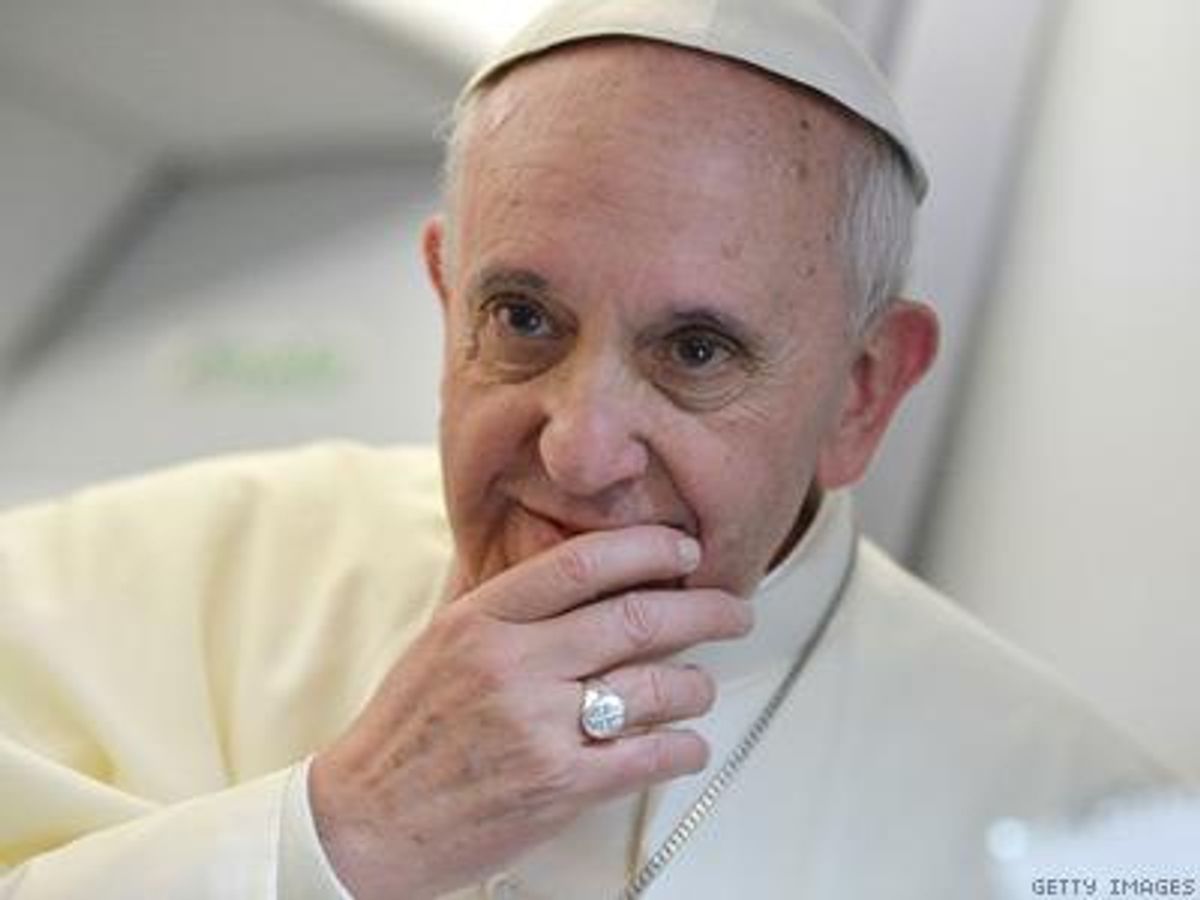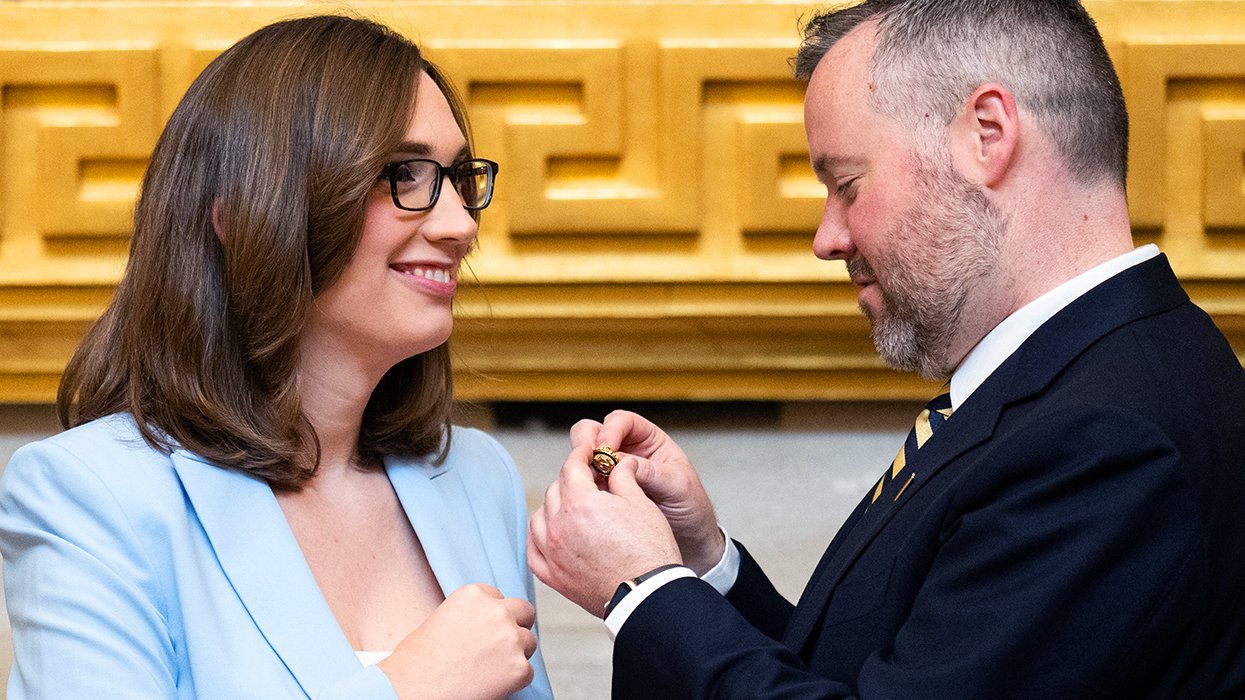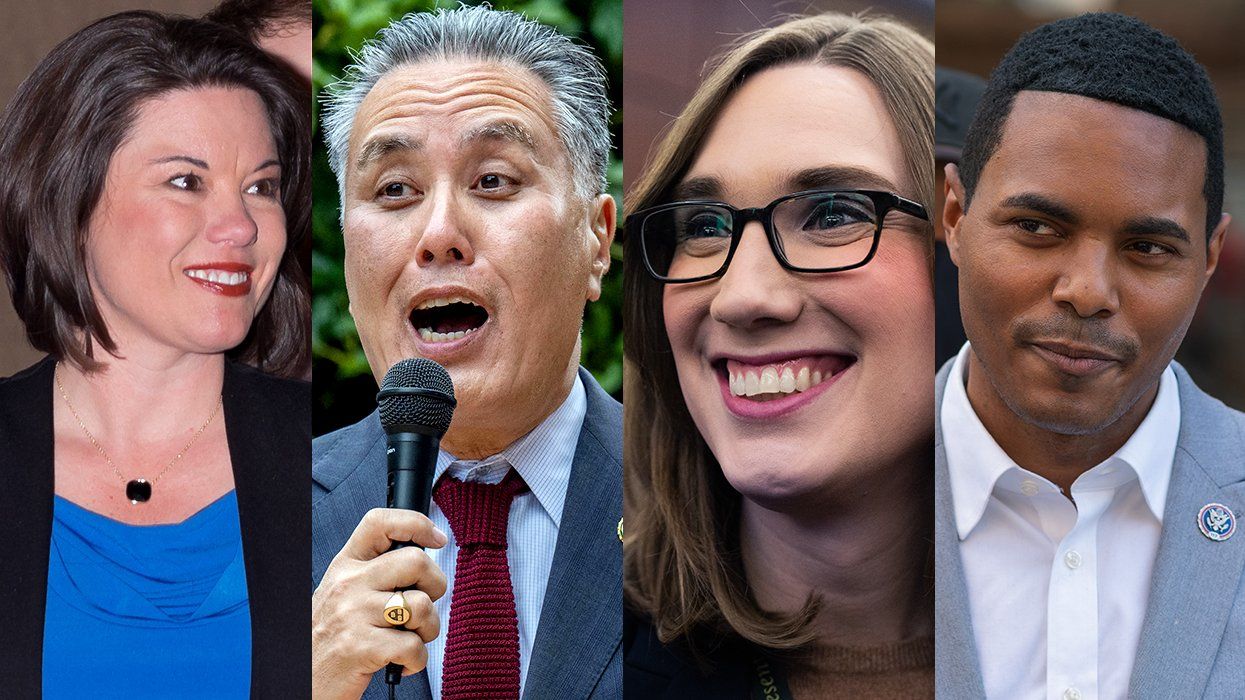Ever since Pope Francis was elected a year ago, I've often felt a bit like Alice Through the Looking Glass.
When I go to gatherings of LGBT and progressive Catholics, everyone lately is quoting the pope -- in gushing terms. Friends who have been staunch antipapists (both Catholic and non-Catholic) now use papal quotations as their authoritative justification for every argument. It's bizarre. I'm still not used to it.
Last year at this time, the world was waiting for white smoke to rise from a chimney in Rome. Having spent 35 years, more than a generation, under the papal reigns of John Paul II and Benedict XVI, many progressive Catholics were hoping for a change. Yet since virtually every cardinal voting for the new pope were appointed by these two men, hope was dim. The mood was best described by John Lazar, a resigned priest, in the Washington Blade:
"The hope expressed by many LGBT Catholics, for the new leader that will be chosen by the College of Cardinals, may not have the best odds in their favor this time around. But Catholics do know that the Holy Spirit can pull some surprises, and perhaps, this Papal Conclave may result in just a few."
Surprise is an understatement. No one could have predicted Pope Francis. His many headline-making statements about gay and lesbian people and relationships are radically reshaping the Catholic discourse on these topics. Even Cardinal Timothy Dolan, a staunch opponent of LGBT equality, recently echoed Pope Francis's famous "Who am I to judge?" line. When asked recently about Michael Sam, who may become the first openly gay NFL player, Dolan answered, "Good for him. I would have no sense of judgment on him."
Some have downplayed Francis's achievement by saying that he is all style and no substance. While it is true that he has not made any doctrinal changes, a change in style is still very significant. The fact that Francis is the first pope to use the word "gay" is a giant step forward. What we have never heard from him in reference to homosexuality are the favorite terms of the previous two popes: "objectively disordered" and "intrinsically evil."
Change in the Catholic Church happens evolutionarily, not revolutionarily. While a change in language may not seem important, it sets a new tone in the church, and tone affects practice. Church history teaches that practice usually precedes doctrinal change. Francis's greatest contribution to LGBT causes may not be overturning repressive teaching, but laying the path that will allow that teaching to be overturned by a successor.
For example, perhaps his most significant step so far is that he has asked Catholics in the pews for their input on a variety of marriage and family issues (including same-gender relationships) in advance of a major church meeting of bishops to be held in Rome this fall. No pope has ever done this before. Already we have seen bishops from around the world admitting that lay people want church teaching on sexual issues updated. So Francis's change in management style is already opening up the discussion.
Where it is most evident that this pope will have a major impact down the road is in a document in which he barely mentioned LGBT issues. At the end of November, Pope Francis issued "The Joy of the Gospel," in which he laid out his vision for a new church. What gives me hope from this document is humility. He called for the church to emphasize diversity and decentralization. He stressed that the opinions of laypeople and knowledge gained from science should contribute to church teaching. He called for the church to update its old traditions.
In short, Pope Francis's greatest contribution so far, and perhaps what will be his lasting legacy, is not what he has said, but in the fact that he wishes to listen.
Francis DeBernardo is executive director of New Ways Ministry, a national Catholic ministry of justice for LGBT people. He writes at Bondings 2.0.


















































































